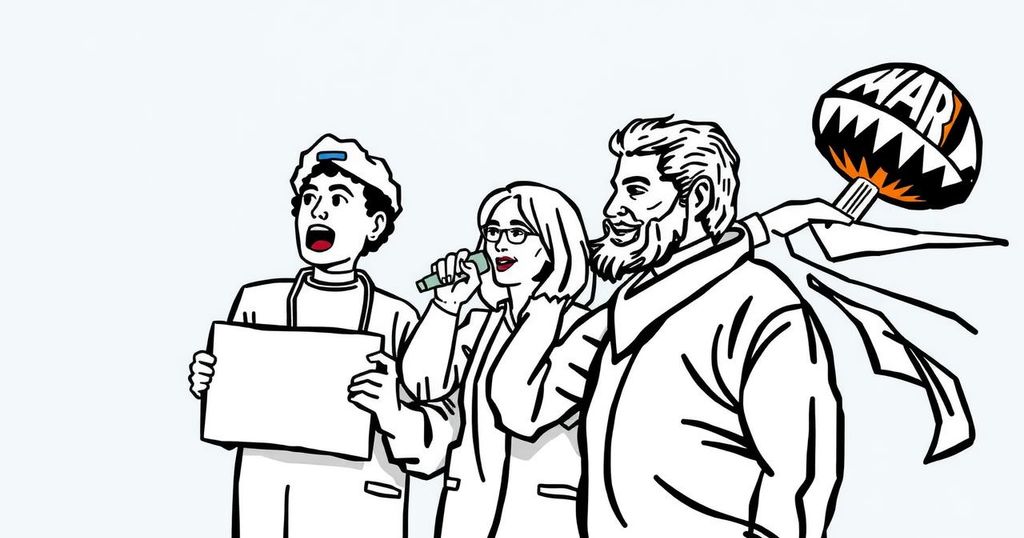Uruguay Presidential Run-off: A Model of Democratic Coexistence

The presidential run-off in Uruguay featured conservative Alvaro Delgado facing leftist Yamandu Orsi. Both candidates emphasized economic reforms while pledging unity and respect for democracy. The election reflected Uruguay’s tranquil political climate, contrasting sharply with turmoil in other Latin American nations.
In Uruguay, a presidential run-off staged on Sunday showcased a commitment to democratic principles amidst a backdrop of political challenges in other Latin American nations. Conservative candidate Alvaro Delgado of the National Party faced off against leftist Yamandu Orsi from the Broad Front coalition, following their respective performances in the initial round of elections on October 27. Orsi, despite leading in the first round with 44 percent of the votes, fell short of the majority needed to secure victory directly.
Delgado, who garnered only 27 percent in the initial voting, stood to gain from the significant support enjoyed by third-place candidate Andres Ojeda, potentially securing an additional 20 percent of voters. This run-off reflected a critical moment in Uruguay’s electoral history as it marked a contest between ideologies and policy proposals aimed at economic reform. Orsi, who served as a history teacher and has backing from former President Jose Mujica, has focused his campaign on raising wages for low-income citizens. Conversely, Delgado has promoted the necessity of streamlining governmental bureaucracies and establishing trade agreements, notably with China.
Both candidates have voiced their commitment to fostering a sense of unity and democratic respect, regardless of the outcome. Fernando Pereira, head of the Broad Front coalition, resonated this sentiment, stating, “We must value what we have: democratic coexistence.” This electoral process transpired in stark contrast to the turmoil witnessed in Mexico and Venezuela, highlighting Uruguay’s reputation for democratic stability in the region. The calmness surrounding the elections was noted by Ojeda, who commented on the peaceful atmosphere prevailing during the electoral period, suggesting an environment that could easily mask the electoral activities taking place.
Uruguay has long stood as a beacon of democratic stability within Latin America. This year, as various countries in the region grappled with political unrest and violence, Uruguay’s elections spotlighted a contrasting approach focused on civil discourse and coexistence. The run-off election, between Alvaro Delgado of the conservative National Party and Yamandu Orsi of the leftist Broad Front coalition, represented a culmination of diverse political ideologies, reflective of the broader regional context.
The recent presidential run-off in Uruguay illustrated the nation’s dedication to preserving democratic values in a climate often characterized by political unrest in Latin America. Candidates Alvaro Delgado and Yamandu Orsi highlighted significant economic policies while emphasizing mutual respect for electoral outcomes. The calmness radiating from the elections and the candidates’ pledges to democratic coexistence stand as testaments to Uruguay’s political resilience amid challenges faced by its regional neighbors.
Original Source: www.aljazeera.com








